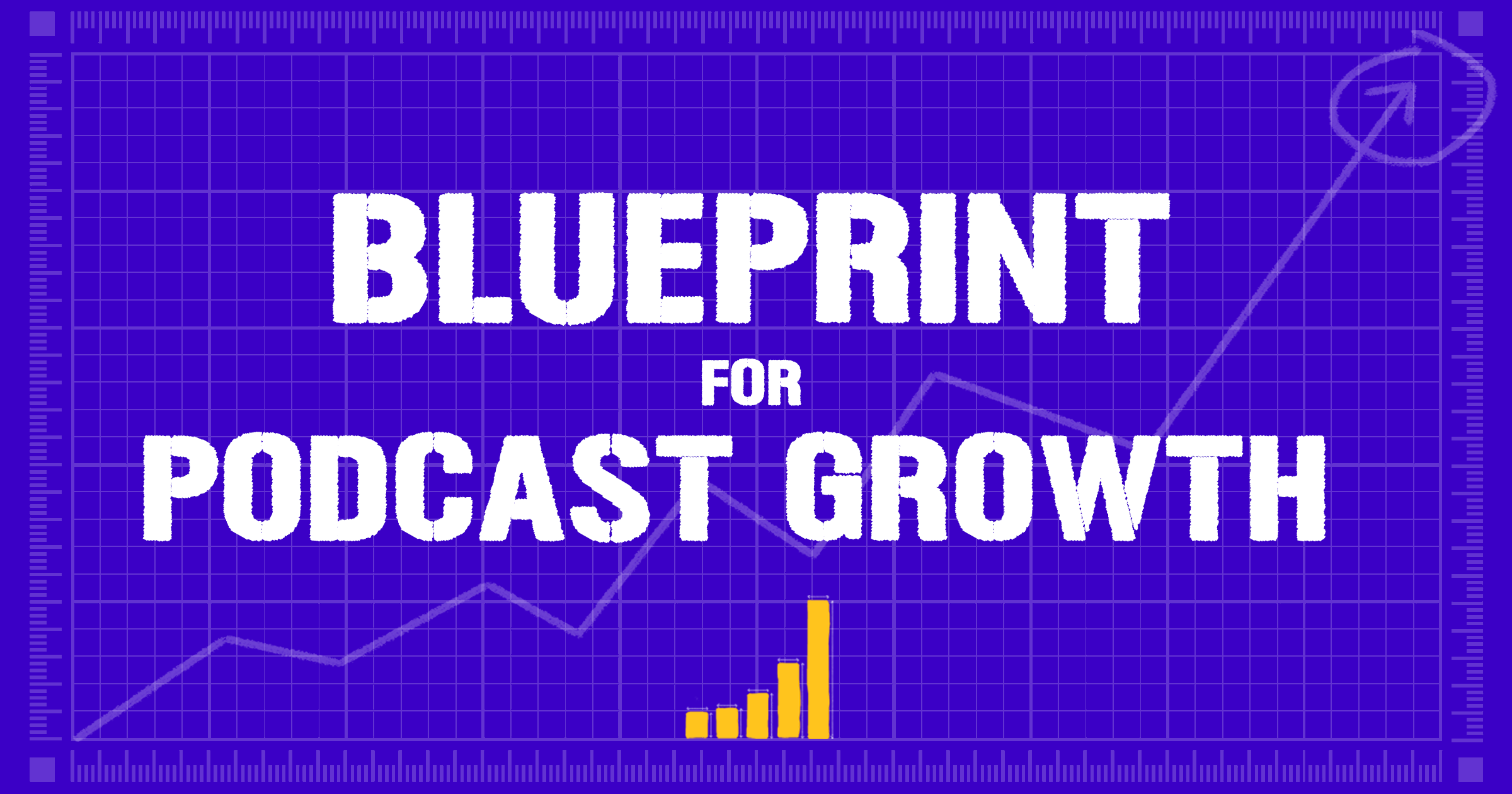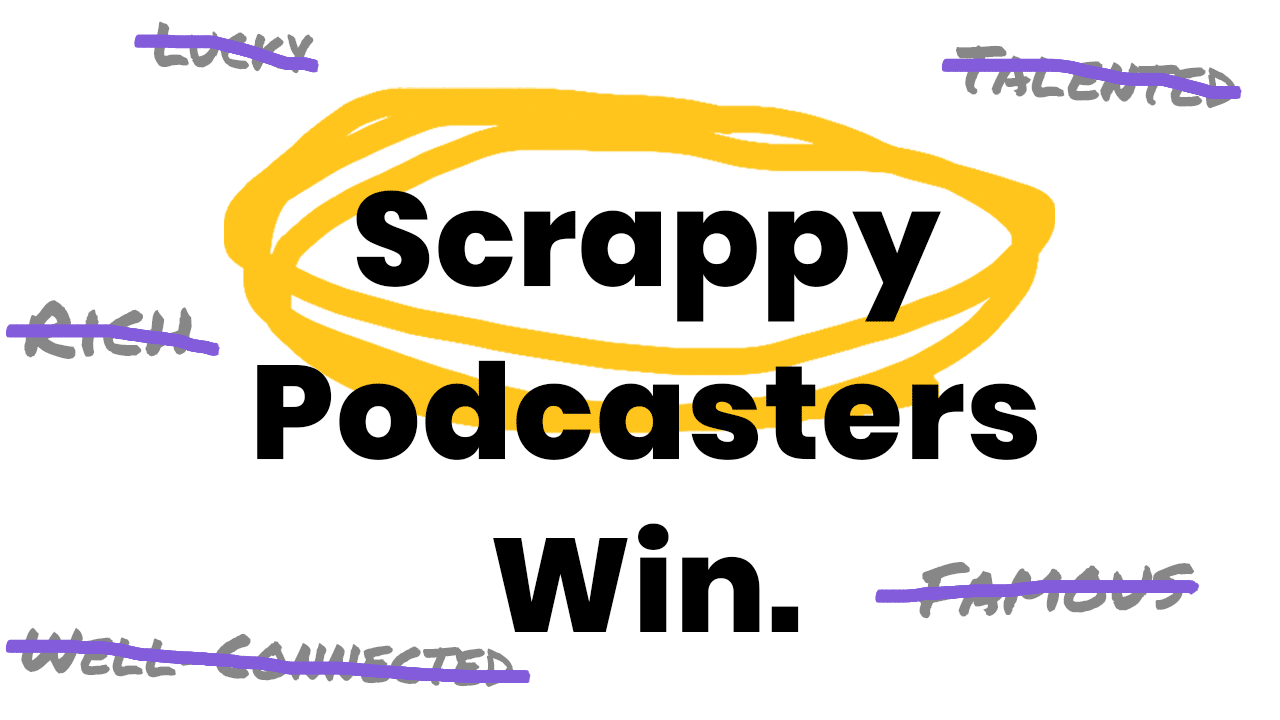You know that feeling when you plug in your headphones, turn up the volume and sit back in your chair…
…And then by some cruel joke of the universe, your podcast starts playing and you hear your own voice blaring back at you, grating against every nerve in your body?
“AHHH DAMMIT, TURN IT OFF, TURN IT OFF!!!”
Yeah, I know, I’ve been there.
Maybe you’re listening over speakers with other people around, and you find yourself incredibly embarrassed at that awful sound seemingly conjured from the depths of Hell that is your own voice, making excuses, or self-deprecating remarks about your delivery and tone.
For whatever reason*, I’ve yet to find someone who actually likes the sound of their own voice.
* I was going to come up with some evolutionary biology like here, but I’ll spare you the “science”…
Of course, as a result of this aversion, we do the only reasonable thing, which is to avoid listening back to our podcasts at all costs. Problem solved.
Except for the fact that actually listening back to our work is probably the best way to make noticeable improvements to our podcasts. It’s not pleasant to be sure, it’s often downright painful in fact. But it’s 100% necessary if you want to improve and grow as a podcast host, interviewer, and storyteller.
Two types of listening
Now I’m guessing that most of you do some form of editing to your podcasts. That might be minimal, trimming either end of the podcast and adding in music and/or ads, or it might be cutting out every “umm”, breath, and moment of dead air.
But here’s the thing, at least when I edit, I find that I’m listening for completely different things than when I’m listening to critique.
So, as the resident podcast MD on staff today*, I’m prescribing an additional listen through to every episode. Take each dose with pen and paper, an open mind, and a shot of tequila (just to spice things up), and repeat for life. I’m sorry, the condition is terminal.
* Yes, I’m totally putting that on my business card…
What am I supposed to listen for?
Ok, so I know the first thing you’re going to hear is that previously discussed god-awful amalgamation of frequencies that is your voice.
Ignore that. You can’t change it, so you’ll just have to learn to live with it.
There are however some aspects of your delivery that you can change. These are the things we’re listening for.
Some examples might be:
- Filler words like “Umm” (or “Emm” if you’re Irish…), “uhhh”, “like”, “ya know” and on and on and on.*
- Stuttering or stumbling through phrases as you try to articulate what you’re saying
- Poorly phrased questions
- Poor pacing of the conversation
- Disjointed flow or arc of the conversation
- Any unintentional Chewbacca sounds you find emanating from deep inside you
- There are others we could note as well, but this is a good place to start
* My personal filler word is “like”. It drives me crazy when I listen to myself. I’m working on it…
If you can get past the sound of your voice and focus on what you’re actually saying, it probably isn’t going to take you long to start hearing a whoooooole bunch of stuff that you’re not happy with.
This is good. Because these tics are fixable, and the first step is actually noticing that you’re doing them.
What to do about your tics?
What I want you to do is start with your last episode and listen through it with a pen and paper. Every time you hear something you’re not happy with, make a note of it.
You could do this by time stamping it, writing down the phrase, or creating a list of categories and tallying the occurrences of each offence in the corresponding column.
Chances are your list is going to be pretty sizable. In fact it might seem so overwhelming that you decide that you’re going to go back to never listening to your podcasts again.*
* You’re also going to decide that Jeremy guy is a stupid-head and you’re never going to listen to him again…
Sorry, but if you’ve made it that far and actually noted all the aspects of your delivery that make you unhappy, it’s too late. You’re going to start noticing them every time you speak, whether you’re podcasting or not.
Again, this is good. This is the second step in improving your delivery and eliminating or reducing them.
I like to make a game out the process by tallying up how many offending instances happen in an episode and then trying to reduce that number with each subsequent episode.
Keep in mind that you’re not going to fix your delivery overnight. As with so many things in life, and indeed your podcast growth in general, it’s about the gradual incremental progress in the right direction.
Modeling Yourself After The Pros
As a companion exercise, come up with a list of the podcasters you most admire and go through their shows with the same approach. Only in this case note all the aspects that you actually like about their show and their delivery, and what it is about the host that causes you to connect with them and engage with the content.
Not only will this help improve your delivery and give you someone to model yourself after, but it will also help improve your interview and storytelling skills.
One More Hack To Improve Your Podcast
Ok, so you’ve listened through and have started identifying the areas you want to work on, maybe you’ve actually fixed a lot of them as your delivery has improved.
Where can you improve next?
Here’s a trick I learned from a friend of mine back when I was working at a recording studio. He would call me in every so often when he was doing mix tweaks and ask for my advice on how the mix was coming together.
The thing was, he wasn’t really asking for my advice.
He knew that as soon as someone else was listening to his mix with him, he would feel self-conscious or feel the need to justify certain aspects of the mix to me.
Boom. Looks like he found the areas he needed to improve without a word from me.
If you’re feeling lost in terms of where to start (or continue) improving your podcast, invite someone to listen to an episode with you. You’ll know immediately by your discomfort at certain moments which areas could use improvement.
Seriously, it works every time. The more you respect that person’s opinion, the more granular you’ll find yourself getting in your analysis as well.
Alternatively, imagine yourself listening through your podcast while sitting alongside your podcasting hero. What would they think of your show? What kind of advice do you think they’d give you. I’m guessing there are some areas you already know could use improvement and might be embarrassed to play for said podcasting hero.
If you’re looking for a ridiculously easy way to track your improvement from week to week, with a snazzy graph and all, look no further than the chart I’ve set up for you below. Listen through your podcast every episode, tally the things that annoy you, and try to beat that total every week. Start improving now!
- Why Wouldn’t They Just Google It? - March 14, 2021
- Before You Can Market Your Podcast, You Need To Create A Marketable Podcast - March 11, 2021
- Podcast Promotion & Marketing Are Different (Here’s How to Use Each Effectively) - March 10, 2021




